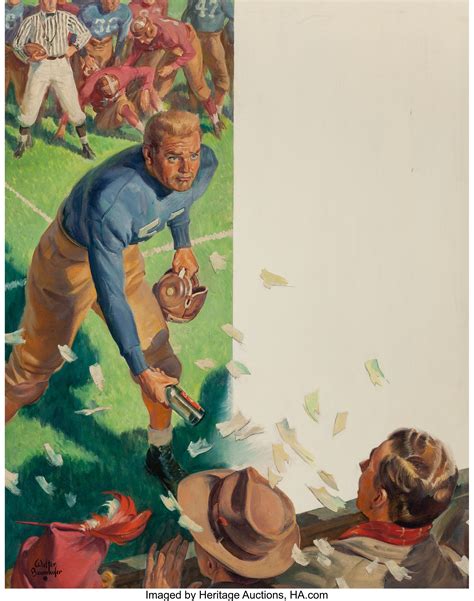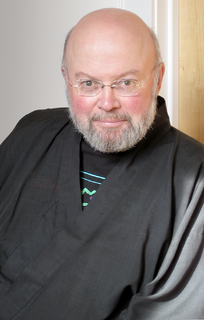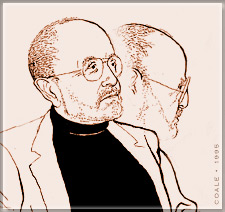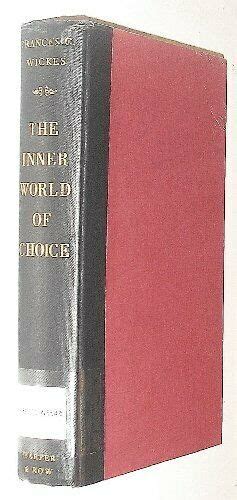A Quote by Lesslie Newbigin
There is an appearance of humility in the protestation that the truth is much greater than any one of us can grasp, but if this is used to invalidate all claims to discern the truth it is in fact an arrogant claim to a kind of knowledge which is superior to [all others]...We have to ask: 'What is the [absolute] vantage ground from which you claim to be able to relativize all the absolute claims these different scriptures make?
Related Quotes
It should be carefully noted that Jesus did not say, "I am one of the equally good ways" or "I am a better way than the others, I am an aspect of truth; I am a fragment of the life." Instead, His claim was absolute, and allegiance to Him as the Savior of the world, was to take precedence over all the claims of men and religions.
Absolute knowledge is only possible when you know the Absolute Truth and to have the Absolute Truth you have to go to the Absolute Being within you which is your Spirit. So, it gives you the truth, it gives you the collective consciousness. The main thing is that you become extremely peaceful personality, you become peace, you emit peace.
A state is absolute in the sense which I have in mind when it claims the right to a monopoly of all the force within the community, to make war, to make peace, to conscript life, to tax, to establish and disestablish property, to define crime, to punish disobedience, to control education, to supervise the family, to regulate personal habits, and to censor opinions. The modern state claims all of these powers, and, in the matter of theory, there is no real difference in the size of the claim between communists, fascists, and Democrats.
I believe that ideas such as absolute certitude, absolute exactness, final truth, etc. are figments of the imagination which should not be admissible in any field of science... This loosening of thinking seems to me to be the greatest blessing which modern science has given to us. For the belief in a single truth and in being the possessor thereof is the root cause of all evil in the world.
There is no such thing as absolute truth and absolute falsehood. The scientific mind should never recognise the perfect truth or the perfect falsehood of any supposed theory or observation. It should carefully weigh the chances of truth and error and grade each in its proper position along the line joining absolute truth and absolute error.
All those formal systems, in mathematics and physics and the philosophy of science, which claim to give foundations for certain truth are surely mistaken. I am tempted to say that we do not look for truth, but for knowledge. But I dislike this form of words, for two reasons. First of all, we do look for truth, however we define it, it is what we find that is knowledge. And second, what we fail to find is not truth, but certainty; the nature of truth is exactly the knowledge that we do find.
Again: there is nothing inherently superior about resistance. All our claims for the righteousness of resistance rest on the rightness of the claim that the resisters are acting in the name of justice. And the justice of the cause does not depend on, and is not enhanced by, the virtue of those who make the assertion. It depends first and last on the truth of a description of a state of affairs that is, truly, unjust and unnecessary.
Even those who have desired to work out a completely positive philosophy have been philosophers only to the extent that, at the same time, they have refused the right to install themselves in absolute knowledge. They taught not this knowledge, but its becoming in us, not the absolute but, at most, our absolute relation to it, as Kierkegaard said. What makes a philosopher is the movement which leads back without ceasing from knowledge to ignorance, from ignorance to knowledge, and a kind of rest in this movement.
I distrust summaries, any kind of gliding through time, any too great a claim that one is in control of what one recounts; I think someone who claims to understand but is obviously calk, someone who claims to write with emotion recollected in tranquility, is a fool and a liar. To understand is to tremble. To recollect is to re-enter and be riven. ... I admire the authority of being on one's knees in front of the event.
So the dream is continually reminding us of the part which our conscious is forgetting. It does not speak with any absolute authority; it simply gives a true picture of a situation which exists in the unconscious. It speaks truth; but not, as some persons believe, the truth. It shows the other side.



































